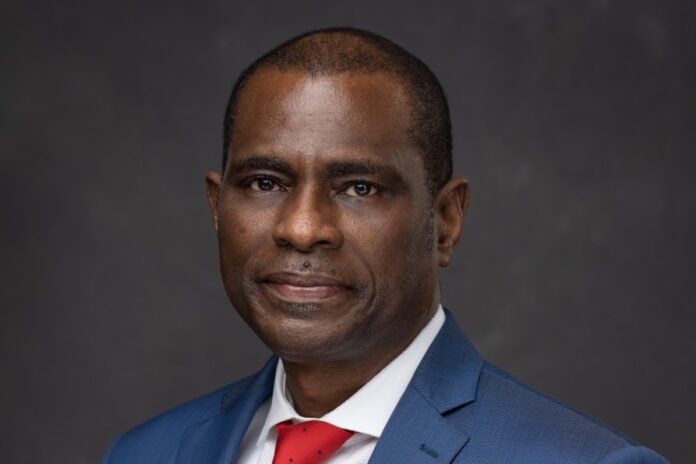The telco’s most profitable subsidiary, Airtel Money, will be listed either in the UAE, the UK, Europe or somewhere else…
Airtel Africa CEO Olusegun Ogunsanya has announced plans to list the telco’s mobile money subsidiary on the stock market in 2025. Bloomberg suggested the unit could be valued at around $4bn. Speaking at the operator’s full year results, the chief executive – who has announced his ‘retirement’ for July – also hinted at the telco plans to enter more markets ahead of the IPO – the service is currently available in 14 markets in sub-Saharan Africa.
Airtel Money is the most profitable subsidiary of the operator listed in London and Lagos. Last week, Airtel Africa reported a loss of $89 million after suffering from the devaluation of the Nigerian naira, like every telco operating in that country. The Bharti Airtel-owned operator put the loss down to an “exceptional loss net of tax”.
In contrast, Airtel Money revenue grew by 32.8% in constant currency, with a continued strong performance in East Africa of 36% and Francophone Africa of 22.3%. Mobile money EBITDA margins of 52.1% increased 234bps in constant currency, supporting growth of 39%. Ogunsanya said mobile money subscriber growth of 20.7% reflected the telco’s continued investment into distribution to drive increased financial inclusion across its markets. Its mobile money customer base now serves 38 million customers, which represents 24.9% of the operator’s total customer base.
Importantly, mobile money saw the transaction value increase 38.2% in constant currency, with an annual transaction value of more than $112bn in reported currency. The chief executive added that increased transactions across the ecosystem reflected the enhanced range of offerings and increased customer adoption, supporting constant currency ARPU growth of 8.6%.
In the past year, Airtel has launched new international money transfer routes, as well as new loan products and continued to integrate more partners into its ecosystem. It also continued to expand its exclusive distribution channel of AMBs and kiosks to ensure availability of services to customers, even in the rural areas. The number of kiosks and mini shops increased by 45% and Airtel Money branches by over 8.7%. The operator’s non-exclusive channel of mobile money agents expanded by 53%, following implementation of its new digital on-boarding journey.
As Ecofin points out, the second largest telecom operator in Africa had already announced in 2021 that it was considering a listing of its mobile money division within the next four years. This announcement was made following investments made by the American private equity fund TPG ($200 million) and the payment solutions giant MasterCard ($100 million) in Airtel Money.
Mobile money momentum
There is no denying mobile money’s impact on the African continent, where more often than not, it replaces non-existent bank infrastructure. A recent GSMA report suggests that despite the positive impact and growth in the past decade, the market is already showing some signs of maturing.
Globally, registered accounts grew to 1.75 billion in 2023, a 12% year-on-year increase. However, this is a lower annual growth rate than the 15% seen in 2022 and 19% seen in 2021. Monthly active accounts also grew at a slower year-on-year rate. By the end of 2023, there were around 435 million active mobile money accounts – a 9% annual rise, compared to 13% in 2022 and 15% in 2021. Sub-Saharan Africa is home to almost three-quarters of the world’s accounts and the GSMA suggests mobile money had increased gross domestic product in the region by more than $150 billion or 3.7% between 2013 and 2022.
In 2023, over a third of new registered and active 30-day accounts globally were from West Africa. This was more than any other region with Nigeria, Ghana and Senegal the main drivers of growth. West Africa’s vibrant mobile money ecosystem has developed differently from East Africa. For instance, West Africa has seen more non-mobile-network-operator (MNO)-led mobile money services emerge to compete with MNO-led providers.
Airtel’s data centre pause
Outside mobile money, Airtel quietly mentioned that its capex was broadly flat at $737m and was below the telco’s guidance largely due to “a deferral in data centre investments”. The acknowledgement is interesting given the operator launched its new data centre business Nxtra to great fanfare last December, promising to build one of the largest network of data centres in Africa with high-capacity data centres in major cities located strategically across Airtel Africa’s footprint, complementing its existing edge sites.



